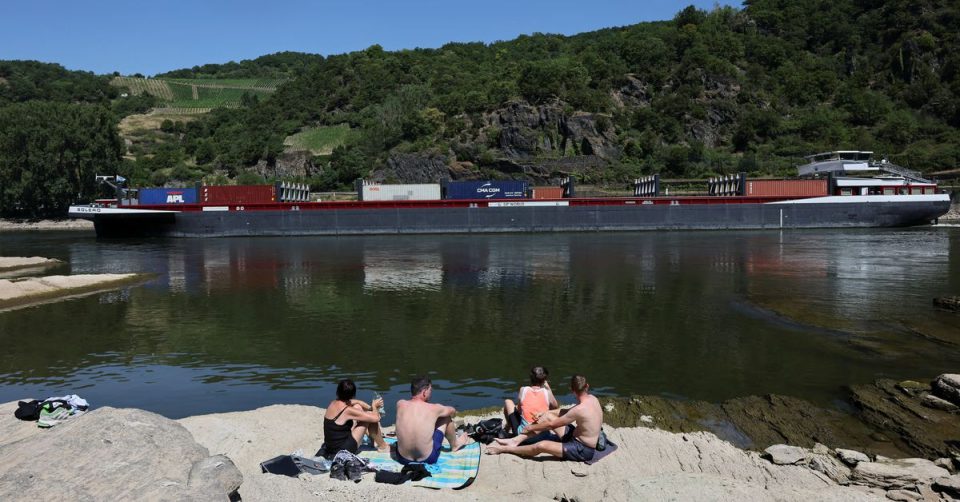Tourists sit on rocks after bathing in the Rhine river while a container vessel passes by at low water levels as recent dry weather continues, that prevented cargo vessels from sailing fully loaded on the river Rhine, at the famous Loreley Rock in Sankt Goar, Germany, July 19, 2022. REUTERS/Wolfgang Rattay
Register now for FREE unlimited access to Reuters.com
HAMBURG, July 21 (Reuters) – Heavy rain is helping stabilise the river Rhine in Germany as it suffers low water levels, but it is unlikely to be enough to solve freight shipping problems, navigation authorities said on Thursday.
Shallow water is hampering shipping on the entire river in Germany south of Duisburg and freight shipping on the river continues but with vessels carrying greatly reduced loads, said a spokesman for German inland waterways navigation agency WSA.
A slight increase in water levels is expected in the chokepoint of Kaub near Koblenz where water levels are especially low.
Register now for FREE unlimited access to Reuters.com
The rain is likely to prevent a further deterioration in coming days but overall water is likely to remain stable around current low levels, he said.
Commodity traders sending cargo by river said vessels at Kaub can only sail 30% full. But sections of the south Rhine had risen 36 cm overnight so some relief was possible during Thursday, one said.
The Rhine is an important shipping route for commodities including grains, chemicals, minerals, coal and oil products including heating oil.
German companies faced supply bottlenecks and production problems in 2018 after a drought and heatwave led to unusually low water levels on the Rhine.
“The current situation is reminiscent of summer/autumn 2018; this could directly impact barging capacity, or cause disruptions to rail/road in the Rhine corridor,” J.P. Morgan said in a note. “Infrastructure investments and alternative freight routes may act as mitigating factors this time round and we therefore believe that the impact may be more indirect through broader supply chain disruptions.”
Based on the 2018 precedent, chemical and steel companies face the main danger of transport disruption, J.P. Morgan said.
Register now for FREE unlimited access to Reuters.com
Reporting by Michael Hogan, Editing by Hugh Lawson
Our Standards: The Thomson Reuters Trust Principles.


